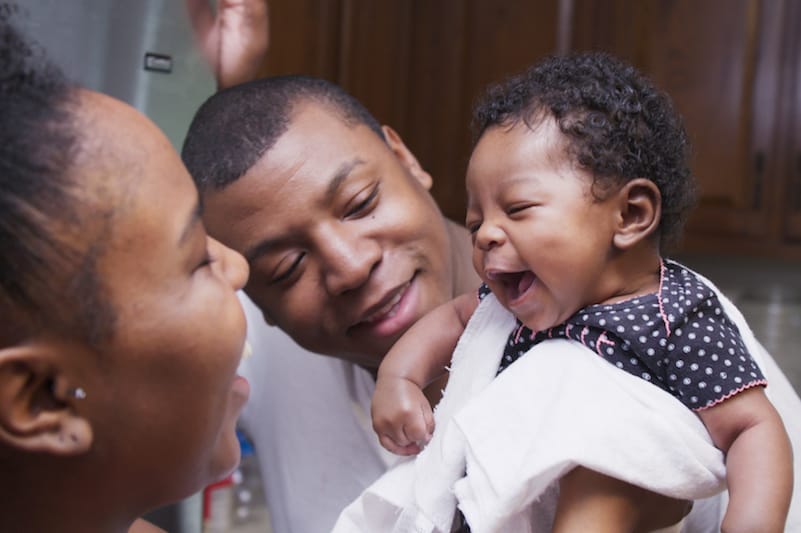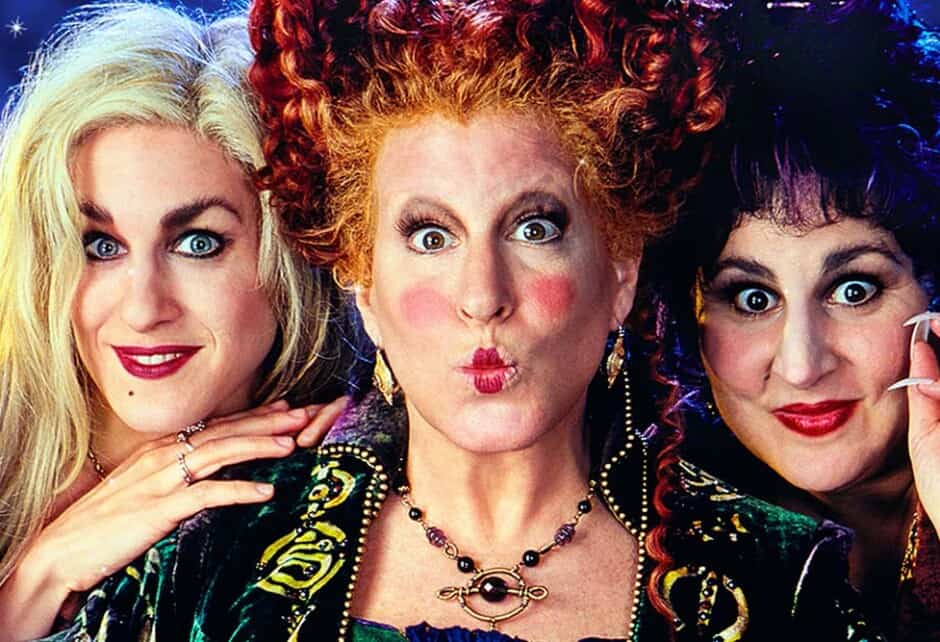
The Secret Lives of Babies (and Parents!) Revealed In This New Netflix Docu Series
Written by Erin Feher
Photography by Image via Babies
Did you know that same-sex dads snuggling their newborn baby born via surrogacy experience the same surge of oxytocin as a mother who just birthed her own child? Or that the extra dose of worry that comes with new parenthood is due to a specific shift in brain activity, and it typically only effects the primary caregiver? BABIES, a 12-part documentary series that debuts tomorrow on Netflix, reveals all these new findings and more, as it follows 15 international families over the first full year of their new baby’s life, and works with leading scientists from across the globe to unravel many of the mysteries surrounding those first 365 days. The series examines the epic journey every person embarks on, from the first bond a baby shares with its parents, to learning to feed, sleep through the night, crawl across the room, speak their first words, and discover the world around them—right up to those first steps of toddlerhood. We got a sneak peek of the first few episodes, and found ourselves sniffling with tears of joy right alongside the new parents, as well exclaiming in surprise at many of the findings of the scientists. We spoke with Sara Brailsford, an executive producer from Nutopia, the production company behind the show, to find out more about how the series came together and what we have to look forward to in future episodes.
How many episodes are there in the series, and can you reveal the topics for each one?
“There are 12 episodes all together, but they will be dropped in two batches of 6. The first series looks at all the big physical changes a baby undergoes: walking, crawling, feeding, and so on. The second series focuses more on what’s going on in a baby’s mind and how they make sense of the world. This will come out later in 2020. It covers everything from core knowledge—do babies understand gravity?—to concepts like mortality, for example. Turns out babies are capable of making moral judgements at a very young age. The series ends with an episode looking at toddlers, and marveling at their sophisticated understanding of other people’s minds and even needs. We show babies are more than capable of altruistic behavior. Ask your toddler for help and you might be surprised by what they can do!”
It turns out primary caregivers typically worry more for a scientific reason. I loved seeing the research behind that. What are some other discoveries BABIES uncovers that you think think will really resonate with parents?
“I think one of the great parts of Ruth Feldman’s work on the biology of love is that she shows once and for all that any parent, regardless of gender, is capable of connecting and providing the same amount of love as long as they spend ample time with the infant. In the ‘Feed Me’ episode, Katie Hinde’s extraordinary work on breast milk was a real surprise. That a mother’s milk changes over time in response to her baby’s needs is extraordinary. Some mothers really struggle to breastfeed, and because of that might not try again when they have another baby. Katie’s work shows that mothers produce more milk for a second child, so it’s really worth giving it another go. Another amazing discovery from the ‘Feed Me’ episode is Susan Lynch’s work on babies living with pets. New parents sometimes think having a baby around their pet is dangerous, or dirty, but she actually found that babies living with cats or dogs is protective. These babies are less likely to develop asthma or allergies later in life.”
What was the most surprising discovery for you?
“What we tried to capture in the series is the wonder of a baby. What I’ve really taken away from making the series is how smart even very young babies are and how much knowledge they come into the world with. They are not blank slates where everything has to be learned. They come into the world expecting certain things and try really hard to form strong connections with their care givers. They are the most sophisticated learning machines on the planet and incredibly social. Babies smile and laugh at a very young age—they make it impossible for us not to fall in love with them.”
So much of the research you reveal in the episodes is brand new—why do you think it has taken so long for scientists to study these aspects of parenthood and development?
“Science moves very slowly! It takes a long time to set up and devise a study to ensure the results are robust. Many of our scientists had significant knock backs before they got their work accepted. Although some of the science is new, we also looked back at older groundbreaking studies, as it’s important to give context. The real game changer has been the development of scanning technology. The ability to scan newborn babies and watch their brains develop over time has led to new discoveries about the role of parenting in shaping a baby’s brain.”
The most common advice to new parents is “trust your gut.” How do you think all this new research will impact that long-held philosophy?
“As a new parent you are bombarded with advice from relatives, families, and the internet. It can be hard to hold onto your own instincts. Milestone charts and growth curves have made parents over anxious that their child isn’t conforming to the norm, but what scientists reveal is that babies don’t follow these proscribed patterns—they are all individuals and will learn to walk and talk at their own pace. Attentive parenting seems to be the real key. This doesn’t mean helicopter parenting or spoiling your baby. It means being sensitive to your baby’s needs and responding accordingly.”
Peep the trailer for BABIES below, and watch the first two episodes on Netflix beginning February 20, 2020.
Leave a Reply to Michael Cancel reply
Share this story




We’ve just watched this and loved E1. Mainly due to the fact we’re a TwoDad family via Surrogacy too, and it’s wonderful to see the studies prove what we’ve always said about Dads being able to love and care in the same way a new mother does. We feel and experience parenting exactly the same. I even wrote a blog on it several months ago.
https://www.twodaddies.co.uk/post/is-paternal-instinct-the-same-or-equal-to-maternal-instinct